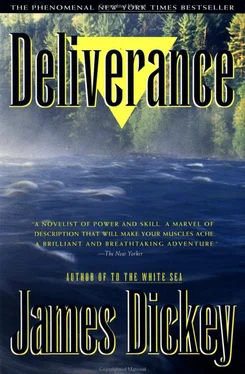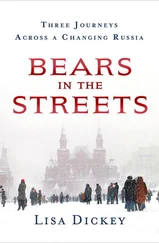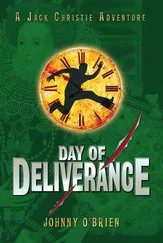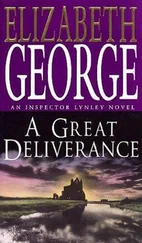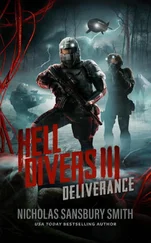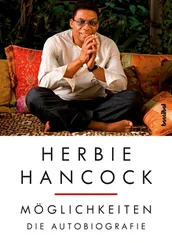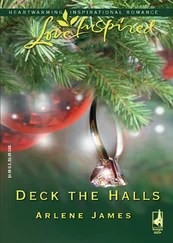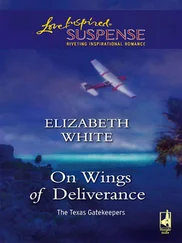“You’ve lost some blood,” he said. “You’ll be pretty weak.”
“I’ve been weak for days,” I said. “Give me whatever you need to give me, and I’ll get going.”
“I sent your friend, the other fellow at the canoe, to Biddiford’s, down in town. They’ll treat you OK. But if I were you I’d stay out here tonight.”
“No thanks,” I said. “I’ll be all right. Tell the police where I am. Just drive me over there and take care of Lewis.”
“The other doctor’s working on him. It looks like a complicated situation, with him. He’ll be lucky if there’s not some gangrene building up around that place. That’s a hell of a break.”
“We’re lucky we’ve got you,” I said.
“You’re fucking aye,” he said. “Hands of an angel.”
He drove me in his own car down through town, and in the main filling station were sitting Lewis’ station wagon and Drew’s Olds. I went in, up tight in my side but not having to hold it together anymore, and talked to the owner, and got the addresses of the Griner brothers so that we could send them the rest of the money. Lewis had arranged it all, and I had to have the owner of the station give back to me what I was supposed to do. I didn’t have enough money, but I could either get it from Lewis or mail it in when I got back to the city. The main thing was that the keys were there. I said good-bye to the doctor, told him I’d come out to the hospital the next day. Then I called Martha and told her something bad had happened, that Drew had drowned and Lewis had broken a leg. I asked her to call Lewis’ wife and say he was in the hospital up here and would be for some time, but that he was going to be OK. If Mrs. Ballinger called her or Lewis’ wife they were just to say that we’d be back in a couple of days. I wanted to tell Mrs. Ballinger about Drew’s death myself. I said I thought I’d be home about the middle of the week.
I drove Drew’s car down to Biddiford’s, a big frame house booming and knocking with people and light. Everybody was at supper around a long swaybacked pine table with strips of flypaper hanging down to within a foot of it. Bobby was there with his face working around a mouthful of food, and I winked at him and sat down. They made a place for us—farmers, woodsawyers and small merchants—and I lost interest in everything but eating. Fried chicken came around me—came at me from every angle—again and again, and potato salad, and heavy coarse biscuits and gravy and butter and collards and lima beans and big hominy and turnip greens and cherry pie. It was good; it was all good.
Afterwards a woman showed me upstairs to a room with a big double bed, which was all they had left; Bobby was somewhere else. But for some reason I was too dry; my mouth was dry, and my skin. So I went down and took a shower in the basement, in the blue-green country night, where I stood with the river-water pouring over my head, making my tight new bandage grow like a heavy side pack, making it bleed a little with the warm water. I nearly went to sleep there, but woke up as the water gradually turned cold. Then I went upstairs, my hair and side wet, and got in bed. It was over. I lay awake all night in brilliant sleep.
When I woke up I was holding on to my side again, a tight, glowing package. I came awake fairly fast, because the midmorning sun, or so it looked and felt, was beginning to sting my eyelids. I was in a big country room with loud reddish curtains and a huge mirror on the wall opposite me, a little bathroom behind me, a dresser with all the knobs missing on one side, and a hooked rug on the floor under the bed and all around.
I lay and thought. I wanted to see Bobby first, and then Lewis. I got up, naked except for the bandage, which felt very much like clothes of some sort, and picked up what was left of my flying suit from the floor, clotted, armless and ragged. I sure didn’t want to put it back on, but I did, and felt for some money. I had a couple of bills that appeared to have been made and issued by the river, but they were still money, and we needed it. I left the knife and belt in the room, and started to go after Bobby. There, in the mirror, I was the survivor of some kind of explosion, with a shirtsleeve ripped off and a pants leg blown open, bearded and red eyed, not able to speak. Out of this I smiled, very whitely, splitting the beard.
When I found out from the lady clearing away breakfast where Bobby was, I went up to his room and knocked on the door. He was still asleep, but it would be better to settle the new things I had been thinking about with him now than later. I kept knocking, and after a time he came.
I sat down in a rocking chair and he sat on the bed.
“First of all,” I said, “I need some clothes. You probably ought to have some too, if we’ve got enough money. Your clothes are in better shape than mine, so you go out and get me some pants—blue jeans are all right—and a shirt. Get yourself whatever you need, and, if you’ve got anything left, buy me some shoes. Brogans.”
“OK. There ought to be a hardware store right around here. In this town, everything is right around here.”
“Now listen, one more time. We’re all right so far; we’re golden. Lewis is getting taken care of, and our stories—or maybe I should say our story—is going over. I didn’t see a flicker of doubt in anybody’s eye. Did you?”
“I don’t think so, but I’m not as sure as you are. Did that one guy ask you about the canoes?”
“No. What guy? What about the canoes?”
“The little old guy who’s some sort of local lawman. He asked me about the other canoe: where was it, when did we lose it, what was in it.”
“What did you tell him?”
“I told him what we agreed to tell him: that we lost it in that last bad place.”
“Did he say anything else?”
“No, I don’t have any idea what he was getting at.”
“I do,” I said, “at least I think I do, and it could be trouble; maybe not real trouble, but trouble.”
“Why, for the Lord’s sake?”
“Because we lost the green canoe the day before yesterday and it, or part of it, might even have been found before we got to the place where we said we lost it.”
“Jesus!”
“We’ll have to try to patch it up, then. It’s likely that this little guy is going to get the word around to the state police that something doesn’t jibe in our story, and then they’ll be asking all of us questions. Remember your movies; police like to separate suspects and try to get them to contradict each other. So we’ve just got to sit here right now and become contradict-proof.”
“Can we do it?”
“We have to try. I think we can. Let’s go back. We lost the other canoe when Drew was really killed, right?”
“Right. There’s nobody who can argue with that. But if we take them up there, or if they go up there …”
“Now wait a minute. We’ll say we spilled first a long ways upriver and that’s where we lost the green canoe and Lewis was hurt. But we all survived and tried to make it downriver in Lewis’ canoe. We were overloaded and taking chances trying to get Lewis out and just couldn’t control the canoe when we hit the bad rapids. That last half-mile of falls got us, and Drew didn’t make it. Now stay with that. Stay with it. If we do we’ll make it home tomorrow night, or—maybe even tonight.”
“Suppose they don’t believe us? What am I going to say when that little rat-faced bastard faces me up to telling him where I said we lost the canoe?”
“Tell him—and anybody else around—that he misread you. Was there anybody else listening to you when he was talking to you yesterday?”
“No, I don’t believe so.”
“That’s good. And I don’t think I let it slip to that first trooper. Anyway, it’s more likely than not that he won’t ask you, but will come around and ask me. When he does, I’ll let him have it. I’m ready for him. I’m sure glad you told me about him. I sure am.”
Читать дальше
